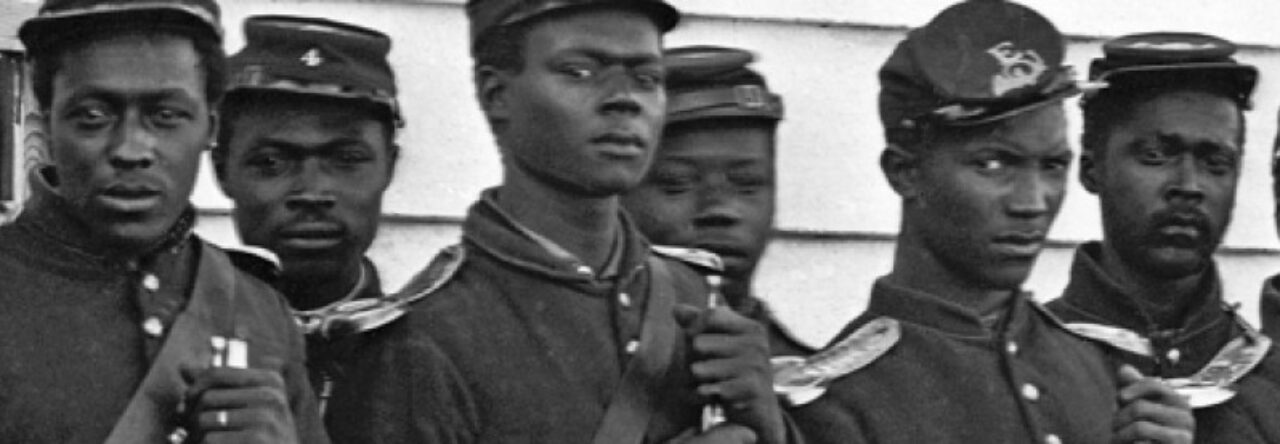While reading For Cause and Comrades , the issue of social class and education was raised to which McPherson states the correlation ” should not be discounted”. Implied is that those with a better education and higher social status tended to be better fighters and not skulkers. And yet, after the initial flag waving excitement of the initial call -up for war passed, the armies of both sides were left to fill their ranks by conscription and/or the use substitutes (McPherson does note that the middle class Irish and Scotch/Irish brigades of the famed Irish Brigade and Louisiana Tigers should give one pause). In the struggle to understand the necessity and the accompanying brutality of war it is fascinating to consider that correlation. Moreover, it seems to call into question F. Douglass’ comment read in this morning’s discussion about the benefit of enlisting former slaves in the cause- many of whom were not educated, nor possessing tangible social status on either side.
Was Douglass wrong?
Is McPherson wrong in suggesting that the correlation existed?
Rich man’s war – poor man’s fight –
To this traditional are we asked to add… smart man’s victory?

mike kleiner
No, I think McPherson rightly suggested we consider the connection between socio-education and attendance to duty. I don’t have a definitive answer, but suspect it’s more than coincidence. Take, for instance, the common scenario of the mayor of a small town being appointed lead a local regiment. On average we would expect that person to be better educated, more outgoing, and better versed in the subtleties of leadership.
While this doesn’t exactly account for leadership ability, or willingness to fight when everyone else is running a ofway, I think the connection lies somewhere a around the notion of accountability.
i have to sleep on it.